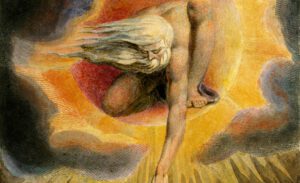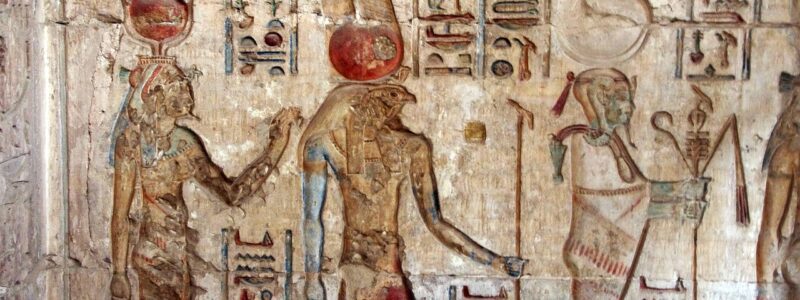The Book of Job

Bible – Image by Free-Photos from Pixabay
The Book of Job is considered the oldest book in the Bible and helps answer one of the biggest questions confronting modern-day Christians.
Modern society tends of think of a cause and effect principle; that is, if you get an infection, you can be treated with antibiotics; if you jump off a cliff, you will likely die; if you do something wrong you will likely be punished. This cause and effect principle is ingrained in a modern society wishing the world to be orderly, predictable, and government by science.
But the world is not that way! Sometimes good people suffer while bad people are rewarded; as the Billy Joel song says, “Only the Good Die Young!” God does not seem to protect his saints as they have been martyred throughout history while evil rulers lived in luxury.
Priests who tended to the sick during the Bubonic Plague which struck Europe during the Middle Ages died along with their patients in huge numbers – they did not seem to be any special treatment from God for their lifetime of service.

Image by Joseph Krump from Pixabay
Even God’s “chosen people” – the Jews, perished by the hundreds of thousands throughout history. This history extends from the Assyrian destruction of the Northern Kingdom, to the Babylonian destruction of the Southern Kingdom, to the Roman destruction of Jerusalem, the diaspora or scattering of the Jews throughout the world, and of course, the Holocaust.
The question as to why good people suffer is explored in modern literature as well. “The Shack” was a modern exploration of the Book of Job which became a best-selling novel and a popular movie.
Certainly, there is no good explanation for much of the pointless suffering throughout history, but a large part of our problem is our very limited knowledge base upon which to make this judgment. In short, we just do not know God’s ultimate plan for us and for those around us – we just do not have the big perspective of history when considering an individual case.
This entire question is considered in one of the greatest and most difficult books of the entire Bible – The Book of Job.
The Book of Job

Job’s “friends” accused him of doing something very wrong and deserved his punishment – Image by Tumisu from Pixabay
The beginning of the book places us in heaven to witness a discussion between God and satan. The man Job is presented as a very righteous individual who has tried to do good all his life. He has also prospered greatly as he has many possessions and has been blessed with a large and prosperous family.
The motives behind Job’s righteousness are challenged – is he being righteous because he is blessed? If Job knows that his good behavior will bring about blessings and abundance, then Job’s righteousness is tainted. He is only righteous because he is rewarded; he is like a dog doing tricks because he knows he will get a reward. Nothing more, nothing less.
At least that is the accusation hurled against him. Satan complains to God,
Have you not put a hedge around him and his household and everything he has? You have blessed the work of his hands so that his flocks and herds are spread throughout the land. (Job 1:9-10).
Put another way, Job’s supposed righteousness is really simply selfishness. Satan argues Job will crumble like a house of cards if he were to experience hardships.
One author notes,
The satan challenges God’s policy of rewarding the righteous by suggesting that it corrupts their motives and proves them to be less righteous. This accusation gives the book an interesting twice, for while we might be inclined (along with Job and his friends) to spend time asking why righteous people suffer, the satan turns the question upside down and asks why they should prosper. In this way, the book gives us the answers we need to a question we rarely think to ask, rather than the answers we thought we wanted. (John Walton, The Book of Job
The Opening Bet in the Book of Job

Job’s faithfulness is challenged by Satan.
What happens next has bothered generations of Christians while providing ammunition for atheists. God and satan make a bet whether hardship will cause Job to reject God. The “hardship” is severe including disease for Job, and the death of his children. Does this mean that God will just kill off people so win a bet with satan?
A popular assumptions is that the Book of Job represents actual history. Instead, it is considered to be Israelite wisdom literature (along with Proverbs and Ecclesiastes) and not historical. It is more like a thought experiment or a hypothetical rather than an actual incident recorded by someone about Job’s life thousands of years ago. As the theologian John Walton,
The scene in heaven is not trying to explain why Job or any of us suffer. Job is never told about that scene, nor would he have derived any comfort from it. As I have taught Job to students over the years, the question frequently arises, “What sort of God is this who uses his faithful ones as pawns in bets with the devil?” I would suggest that this question is based on a fundamental misunderstanding of the prologue. The scene in heaven, like the speeches of Job’s friends, is part of the literary design of a thought experiment to generate discussion about how God runs the cosmos. The prologue is not trying to teach us how Job got into such a difficult situation, or what angelic beings do or do not have access to God’s presence. The message of the book is offered at the end, in the speeches of God, not in the opening scenario, which only sets up the thought experiment. The book is focusing on how God works in the world, not teaching us about how things work in heaven. – John Walton, The Book of Job [adapted quote]
The “Friends” in the Book of Job

Image by Free-Photos from Pixabay
Much of the Book of Job concerns discussion between Job and his friends. His friends insist that his recent terrible losses and personal illness must be because he has done some terrible sin – something wrong in the eyes of God.
In short, Job is being punished for some transgression. A Jewish scholar Matisyahu Tsevat proposed the Book of Job is exploring three possible claims about God and Job – but only two of these three can be true at the same time. These three claims are
- God is Just and Good: God’s character compels him to always act justly for the good of others,
- The Retribution Principle: God has ordered the world so that good deeds are rewarded and evil deeds are punished,
- Job’s Innocence: Job has done nothing to deserve his suffering and there are other reasons we may never know for his suffering
Job’s friends insist on the truth of the first two principles; God is Just and Job is suffering because he has done evil deeds (whether or not he remembers them). The friends assume God works by the retribution principle and that good people will thrive and evil people will suffer. God is just and metes out rewards and punishment accordingly.
Job’s argument is that he has done nothing wrong that would merit the suffering he has experienced. Job turns out to be right because even God himself said so in Job 2:3. The debate Job has with his friends centers around the fact that Job has done nothing wrong – but why then does he suffer?
Eventually Job runs out of things to say to his friends and takes his case to God. In his questioning of God, he notes used to have a wonderful life but now it is gone. His present suffering is unbearable and he demands an explanation!
Response from God in the Book of Job

God creating the world.
The wisdom story account of God’s dealing with Job trying to get Job to understand the “big picture.” God is asleep at the proverbial wheel, letting the universe slide into anarchy. Rather, God pays attention to every little detail through the entire creation.
God has access to much more information about the unfolding of events throughout history than does Job. Job – for all is goodness and faithful life – only has a minuscule knowledge of the events unfolding before him.
God asks Job a series of questions to show God he has no idea of the intricacies of creation. Has Job ever provided food for lions, or seen an isolated mountain goat give birth? Of course, Job replies that he has not.
And what exactly are the aerodynamics of an eagle soaring in the air, knowledge of war horses, and other sorts of natural phenomenon? Of course, Job has little to no knowledge about most topics as he is a Bedouin sheep herder in the remote past.
Job comes to understand that God is not neglectful of the world – but rather has intimate knowledge of every minute detail of event throughout history.
The author notes,
There may be evil and suffering in God’s good world that from one perspective may seem needless, tragic, and unjust. But, from a wider vantage point, there may be a vast network of factors that make the same tragedy fit into a larger cause-effect pattern that brings about the saving of many lives. It’s impossible for any human to know such things or have such a perspective. This means all of our claims to evaluate God’s rule over human history are always limited, and will therefore fall short. I don’t have a wide enough vantage point to accuse God of incompetence, and I never will.

Crime – Image by Ichigo121212 from Pixabay
God then makes a second point about the Retribution Principle. God makes the point that a Retribution Principle is not practical. Everybody is guilty of many transgressions every day, and immediate suffering for these transgressions would limit out progression. It is often only through trial and error that we learn the right path.
The logical outcome is that if everybody got swift and certain punishment for every transgression they perform through life, the existence that would be unbearable. God is like a human parent that lets his children make mistakes and suffer the consequences even though he could have intervened. Pain and suffering have their place in teaching between right and wrong.
But sometimes suffering has no obvious reason; a child dies from cancer, a mother is killed by a hit-and-run drunk driver, etc. The Book of Job is telling us we may never know the reason why something terrible happens, but it is not necessarily due to the sufferer having done some evil.
God and Suffering
God then turns to Leviathan – a mythical creature that in middle-eastern culture was a symbol for violence and chaos. Leviathan is not called evil or bad, but is a creature loved by God that has the power to ruin your life, but it not used by God to punish you.
The major point is that God tells Job to trust him especially when we are suffering rather than try to figure out “reasons” for the suffering. Many times, there is no obvious reason for the righteous to suffer – although there is always a reason.
God’s world is very good, but not without risk not perfect, and not always safe. Job challenged God’s justice for letting bad things happen to good people, but God only asks Job for his trust. There is just too much for Job to understand the intricacies of why things happen.
Summary
The Book of Job is a wisdom story – not a literal account of a remote event. Job does not get the answer he was looking for, but is just told to trust God. Job is told he could not possibly understand the interplay of every event throughout history and how everything will eventually all work out.
Job accused God based on limited knowledge and little evidence. The book invites the reader to put their faith in God for there was always be bad things happening to good people.
The world is not created for our pleasure – it is not a theme park where we are entertained all day. Rather, we are to bring out pain and suffering to God trusting that he does really care about us.
God is still on the throne; we are his children roaming in an uncertain world trying to learn from our experiences. Suffering and evil are meant to jar us out of our complacency, make us realize the limited number of day we walk on this earth, and to draw closer to the one who created us.




